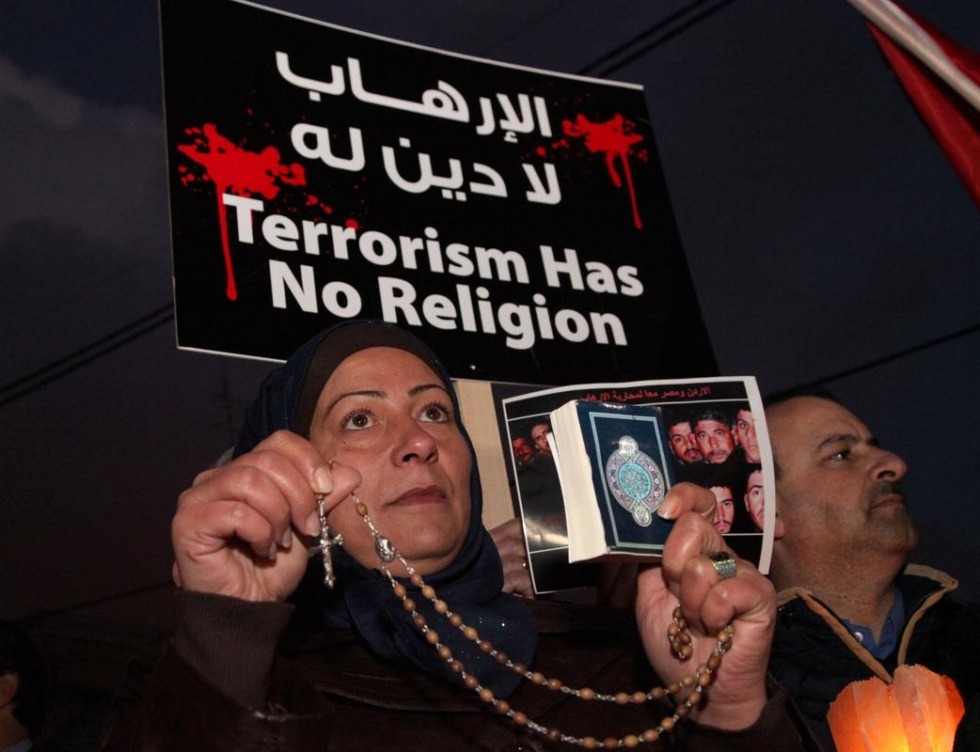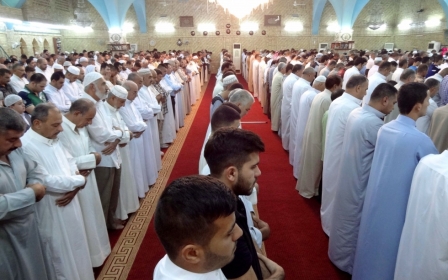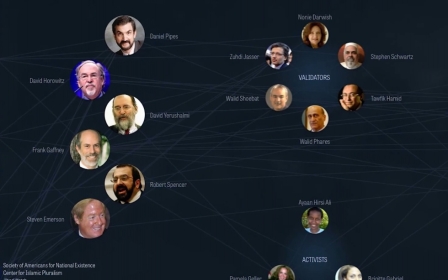ISIS and the academic veil for Islamophobia

In a recent article for The Atlantic, Graeme Wood takes great pains and goes to considerable lengths in explaining what the Islamic State, also known as the Islamic State in Iraq and Sham (ISIS), as an organisation really wants. In summary, Wood’s position is that a proper understanding of ISIS needs to take into account, and in fact disregard any claims to the contrary, that the actions of ISIS’ militants and goals are primarily motivated by religious teachings about the coming of the apocalypse, which are plainly stated in Islamic texts. The article attempts to make the case that ISIS is in fact “a religious group with carefully considered beliefs.”
Although Wood does make a number of cogent points about ISIS, he does make the all-too-common mistake of equivocating between the Islamic source texts, i.e., the Quran and Prophetic Hadith literature, and the Islamic legal texts, which are the products of scholarship that can at times grossly misrepresent the objectives presented in the original sources.
Moreover, he falls for what he accuses the majority of Muslims of: selective reading of the tradition. This has caused a great deal of confusion for many who try to put ISIS within a framework that places the group in a familiar category. Furthermore, Wood’s article and others like it can aptly be described as Islamophobic.
Wood swiftly dismisses the validity of beliefs the majority of Muslims hold with regards to Islam, disregards the official position most Muslim theologians have expressed on ISIS and violent extremism, and grants Islamic doctrinal legitimacy only to that which is being promoted by spokespersons from ISIS or their fans.
The argument posed in the article is that the only group of Muslims who take their Islamic texts seriously is ISIS. Furthermore, the religion as a whole is dismissed as Wood cites the Princeton University scholar Bernard Haykel, who rejected the existence of Islam as a religion that has clear commandments and prohibitions independent of the interpretive activity exercised by Muslims.
In short, the only people who understand what Islam is really about as far as Wood is concerned are ISIS and academics who say what ISIS militants do is authentic Islam. As for the rest of over 1.6 billion Muslims and their theologians, they have what in the words of Haykel calls it, “a cotton-candy view of their own religion.”
What really gives it away that Wood and academics he cites in his article have grossly misunderstood the problem of religious fanaticism in the Middle East North Africa (MENA) region is his suggestion at the end of the article: that quietist Salafism is the antidote to ISIS. In fact, if we were to ignore politics for a moment and focus on a religious contribution for radicalisation, quietist Salafism, as well as state-sanctioned Sufism in MENA, are currently the strongest recruitment tools for ISIS.
Contrary to how it may appear, what ISIS leader Abu Bakr al-Baghdadi symbolises for his militants and fans is not the revival of the caliphate or a return to Prophetic times of welfare and prosperity. Al-Baghdadi represents an end to corrupt, Western-backed rulers who usurp obscene amounts of wealth at the cost of impoverishing the population, all the while stripping people of any dignity or freedom to say anything against the source of their current state of affairs. What many writers and researchers living in the West do not comprehend is that Graeme Wood could not even dream of being able to openly interview people like Musa Cerantonio, an ISIS preacher in Australia, or Anjam Choudary, a vocal defender of ISIS in London, had they all been living in MENA.
The extent of political despotism and suppression of free speech in the region is so pervaise that writing online posts questioning the current powers’ status quo has earned the Saudi blogger Raif Badawi 1,000 lashes and 10 years in prison. Over 800 unarmed civilians among many protestors against the ouster of President Mohamed Morsi in Egypt were methodically killed in what later became known as the Rabaa Massacre. More than 200,000 people have paid with their lives in Syria simply for saying they do not want Bashar al-Assad to be their president. Sunni and Shia sectarianism in Iraq only became as such and turned violent after the 2003 US invasion, which as a number of analysts have pointed out, is a sectarianism that has more to do with politics than religion.
These are just examples of what has become normalised in MENA. It is disingenuous, to say the least, for anyone to enjoy their taken-for-granted privileges of democracy and freedoms enjoyed in the West, and then offer a facile religion-focused analysis that distracts from the real problem of Western-backed despotism and tyranny in the region.
The quietest Salafism that Wood suggests as an antidote against ISIS, along with state-sanctioned Sufism promoted by Egyptian President Abdul Fattah al-Sisi through preachers like Habib Ali al-Jifri, is a type of religion that tells people to be quiet when clear transgressions against them have taken place, which goes against Islamic teachings and delegitimises sincere Muslim scholars who want to have justice served without creating mayhem and bloodshed.
It is the twisting of Islamic teachings to accept oppression and not even speak out against it. Although the Prophet Muhammad did prohibit civil strive and the taking up of arms against established rulers, as it usually leads to situations similar to what we see today in Syria, he did say that the greatest of martyrs is one who stands up against a tyrannical and oppressive ruler, commands them to do good, forbids them from doing evil, and is killed by that ruler for speaking those words of truth.
It is certainly true that the propaganda material put out by ISIS does contain numerous justifications for their horrific actions that quote selectively from within Islamic legal texts. An ISIS favourite is Ibn Taymiyyah (1263-1328), a prominent scholar considered as one of the highest theological authorities by many Muslims, and a source of many legal rulings that form the basis of ISIS behaviour today.
What ISIS militants choose to turn a blind eye to is that Ibn Taymiyyah was a refugee during the Mongol invasions, and his rulings permitting torture and mutilation of the dead were reactionary rulings that have to do more with what he witnessed the Mongols do to Muslims at the time. In fact, his legal justifications for issuing such rulings explicitly stated this very reason.
One of the most powerful moments for ISIS militants and fans came last summer when al-Baghdadi gave his one and only Friday sermon in Mosul during the month of Ramadan. Aside from adopting the first epithet of the Prophet’s best friend and first caliph after his passing, Abu Bakr As’Sideeq, al-Baghdadi showed a strong command of Arabic, recited verses from the Quran and was heavily promoted as a direct descendent from the Prophet and his tribe.
However, focusing on the religious rhetoric that ISIS uses without paying attention to how their spokespersons and fans justify their crimes is like attributing the stench coming from a garbage dumpster to the graffiti drawn on it. Ironically, the Quran warns against the alluring nature of religious rhetoric, and hence one of the essential teachings in it is to ignore religious rhetoric and focus on actions: “There is a kind of people whose statements may please you, and even call on God to witness what is in their hearts, yet they are the bitterest of opponents. When they leave, they set out to spread corruption in the land, destroying crops and livestock – and God does not like corruption. When they are told, ‘Beware of God [and desist],’ their arrogance leads them to sin. Hell is enough for them: a dreadful resting place.” [2:204-206]
An analysis of what ISIS is about and what it wants that looks to Islam as a causal source of their behaviour is not only misguided, but also harmful. It obscures the root causes for why we have an ISIS, an al-Qaeda, an Ansar Bayt al-Maqdis, and any of the other groups that have risen and continue to arise. It creates further confusion and contributes to a rising Islamophobic sentiment in the West. And when given the guise of academic rigour, it accomplishes all of this rather perniciously.
- Mohamed Ghilan is a classically trained student in Islamic law and theology and is currently a neuroscience PhD candidate at the University of Victoria, Canada.
New MEE newsletter: Jerusalem Dispatch
Sign up to get the latest insights and analysis on Israel-Palestine, alongside Turkey Unpacked and other MEE newsletters
Middle East Eye delivers independent and unrivalled coverage and analysis of the Middle East, North Africa and beyond. To learn more about republishing this content and the associated fees, please fill out this form. More about MEE can be found here.





